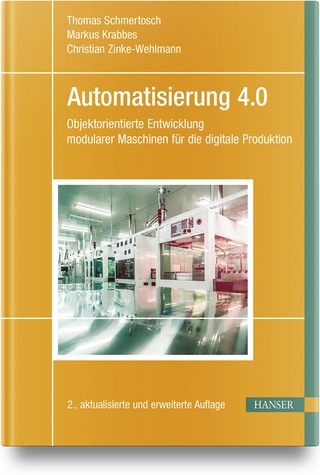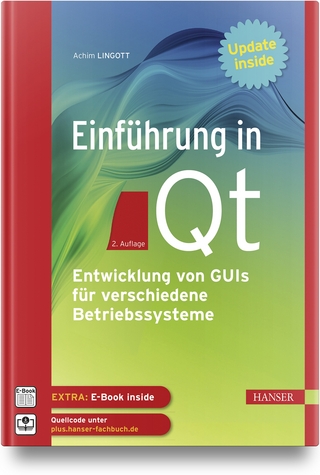
Problem Solving with C++
Pearson Education (US) (Verlag)
978-0-8053-7440-7 (ISBN)
- Titel erscheint in neuer Auflage
- Artikel merken
Best-selling author Walter Savitch has written a new highly accessible introductory computer science text suitable for both majors and non-majors courses. This text, Problem Solving With C++, is based on the idea that students are more likely to use a method successfully and intuitively if they learn it early. With this in mind, the book opens with basic control structures and defining functions and then covers classes. This placement has students designing their own classes from the beginning so that by the end of Chapter 8 they can write realistic class definitions. Other topics given early coverage include public and private members, function overloading, operator overloading, and friend functions. In addition, the text features Professor Savitch's friendly, motivational writing style and strong pedagogical program which guide students through each topic, building both a thorough understanding of C++ and good programming techniques. This title also offers a modular organization that lets instructors tailor topic selection and presentation.Audience: Freshman/Sophomore Computer Science majors/non-majors Courses: Introduction to C++ Introduction to Programming Introduction to Computer Science Prerequisite: High School Algebra 080537440XB04062001
Walt Savitch is a Professor of Computer Science at the University of California at San Diego, where he has been one of the main designers of the computer science curriculum. A well-known and respected author, he has written widely on complexity theory and on computational linguistics, and published a textbook on computability theory. 080537440XAB04062001
1: Introduction to Computers and C++ Programming. Computer Systems. Programming and Problem-Solving. Introduction to C++. Testing and Debugging. Chapter Summary. Answers to Self-Test Exercises. Programming Projects. 2: C++ Basics. Variables and Assignments. Input and Output. Data Types and Expressions. Simple Flow of Control. Program Style. Chapter Summary. Answers to Self-Test Exercises. Programming Projects. 3: Procedural Abstraction and Functions That Return a Value. Top-Down Design. Predefined Functions. Programmer-Defined Functions. Procedural Abstraction. Local Variables. Overloading Function Names. Chapter Summary. Answers to Self-Test Exercises. Programming Projects. 4: Functions for All Subtasks. void-Functions. Call-by-Reference Parameters. Using Procedural Abstraction. Testing and Debugging Functions. Chapter Summary. Answers to Self-Test Exercises. Programming Projects. 5: I/O Streams as an Introduction to Objects and Classes. Streams and Basic File I/O. Tools for Stream I/O. Character I/O. Inheritance. Chapter Summary. Answers to Self-Test Exercises. Programming Projects. 6: Defining Classes and Abstract Data Types. Structures. Classes. Abstract Data Types. Chapter Summary. Answers to Self-Test Exercises. Programming Projects. 7: More Flow of Control. Using Logical Expressions. Multiway Branches. More About C++ Loop Statements. Designing Loops. Chapter Summary. Answers to Self-Test Exercises. Programming Projects. 8: Tools For Defining ADTs. Defining ADT Operations. Separate Compilation. Chapter Summary. Answers to Self-Test Exercises. Programming Projects. 9: Arrays. Introduction to Arrays. Arrays in Functions. Programming with Arrays. Arrays and Classes. Chapter Summary. Answers to Self-Test Exercises. Programming Projects. 10: Strings and Multidimensional Arrays. String Basics. Multidimensional Arrays. A String Class. Chapter Summary. Answers to Self-Test Exercises. Programming Projects. 11: Pointers and Dynamic Arrays. Pointers. Dynamic Arrays. Classes and Dynamic Arrays. Chapter Summary. Answers to Self-Test Exercises. Programming Projects. 12: Recursion. Recursive Functions for Tasks. Recursive Functions for Values. Thinking Recursively. Chapter Summary. Answers to Self-Test Exercises. Programming Projects. 13: Templates for More Abstraction. Templates for Algorithm Abstraction. Templates for Data Abstraction. Chapter Summary. Answers to Self-Test Exercises. Programming Projects. 14: Pointers and Linked Lists. Nodes and Linked Lists. A Linked List Application. Chapter Summary. Answers to Self-Test Exercises. Programming Projects. Appendix 1: C++ Keywords. Appendix 2: Precedence of Operators. Appendix 3: The ASCII Character Set. Appendix 4: Some Library Functions. Arithmetic Functions. Input and Output Member Functions. Character Functions. String Functions. Random Number Generator. Trigonometric Functions. Appendix 5: The assert-Statement. Appendix 6: Inline Functions. Appendix 7: Constructor Initialization Section. Appendix 8: Overloading the Array Index Square Brackets. Appendix 9: The this Pointer. Appendix 10: Derived Classes and Inheritance. Index. 080537440XT04062001
| Erscheint lt. Verlag | 20.9.1995 |
|---|---|
| Zusatzinfo | Illustrations |
| Verlagsort | Upper Saddle River |
| Sprache | englisch |
| Gewicht | 1218 g |
| Themenwelt | Mathematik / Informatik ► Informatik ► Programmiersprachen / -werkzeuge |
| Informatik ► Software Entwicklung ► Objektorientierung | |
| ISBN-10 | 0-8053-7440-X / 080537440X |
| ISBN-13 | 978-0-8053-7440-7 / 9780805374407 |
| Zustand | Neuware |
| Haben Sie eine Frage zum Produkt? |
aus dem Bereich


